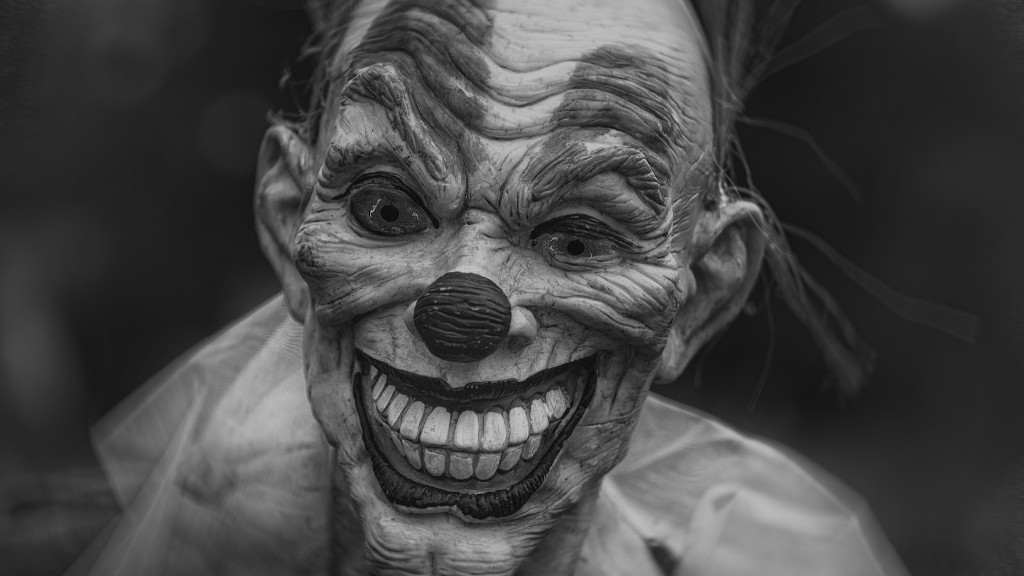Characteristics of Parody in Deadpool
Deadpool, the anti-hero published by Marvel, is a perfect example of a parody of the superhero genre. Ryan Reynolds’ portrayal of the character has brought the franchise to life, resonating with audiences new and old. Deadpool combines the comic book tropes and conventions often associated with the classic superhero style but remixes them in a way that can only be described as uniquely Deadpoolesque. Spanning various mediums, from comic books to television and film, the character has gained cult status and demonstrates an example of subversive, matter-of-fact parody, one that fans of differing age and social class can appreciate.
At the core of Deadpool’s success rests his distinct sense of humor and sardonic attitude, a style of comedy that packs a punch and is in stark contrast to other comic book characters. Deadpool’s jokes often offer observations on topics and issues that relate to reality. He punctures the plot, disrupting the drama and turning it into something lighter, more comedic and accessible. In some scenes, Deadpool continuously speaks to the camera, openly interacting with and breaking down the fourth wall – similar to that of a narrator and a protagonist.
Beyond humor, Deadpool is notable for his lack of hero complex, a quality that sets him apart from other comic book characters. He is not after redemption or justice, but worldly goals such as fame, money, and love. Deadpool is confident and unashamed to express his innermost thoughts and feelings, and his deep introspection of the world and its inhabitants is a refreshing short respite from the often serious paragons of justice.
But what really distinguishes Deadpool from other superheroes is his willingness to embrace traits that make him a villain, not just a hero. He is arguably a parody of what superheroism stands for, poking fun at the tried-and-true tropes and melodramatic conventions associated with comic book figures. With his raucous brand of humor and rebellious liberality, Deadpool defies the narratives established from other characters.
Controversial Content of Deadpool
Deadpool often walks a thin line between humor and offensiveness, and its R-rated content has been heavily criticized by some viewers. But its dominant comedic motif – that of parody that often incorporates offensive language and crude jokes – can be seen as an attempt to subvert its genre conventions. Deadpool offers an unsanitized portrayal of a superhero, one that is not aligned with genre standards, as it utilizes various elements to mock them.
At the center of Deadpool’s parody is his irreverent attitude and adherence to the unspoken code of superhero rules. He plays by his own set of rules and openly disregards others. Additionally, Deadpool is littered with parody of the superhero genre itself, drawing inspiration from comic books, superheroes, and other media to make pointed observations about the commodification, fetishization, and worship of superheroes.
By combining irreverence, parody, and humor, Deadpool operates outside the normal conventions associated with superhero movies. He mocks the established forms of heroism, challenging audiences to think about how the genre has presented characters, plotlines, and conflict resolution to audiences over the years. In this way, Deadpool allows for the genre of superhero films to be seen in a more humorous, light-hearted and genuinely enjoyable way.
Relationship between Deadpool and Other Superhero Characters
Deadpool’s relationship with other superheroes is a unique and sometimes contentious one. He is not a ‘good guy’ and is not beholden to any superhero codes. In some cases, Deadpool stands in opposition to the regular convention of heroism, trading honor and principled morality for a wry sense of irreverence and disregard. His relationship with Marvel’s other heroes is often strained, as his interactions with them are marked by mockery rather than empathy.
Unlike other superheroes, Deadpool has no qualms about the number of enemies or heroic conquests he must make. This sets him apart from the average good guy and resonates with a more morally ambiguous audience. He is unafraid to stand for what he believes in and is willing to go to any lengths to get his message across. This in itself is a form of parody – Deadpool challenges conventions through his actions, often to great comedic effect.
At the same time, Deadpool still manages to fulfill the expectations of a superhero – he protects the innocent and battles adversaries in a rage-filled catharsis. But his motives are anything but noble – he does it for personal gain, for revenge and to satisfy his own urge for violence. This paints him as a unique kind of anti-hero, one that stands in opposition to traditional heroes in both motive and mindset.
Deadpool’s Unconventional Success as a Parody
Despite its often raucous and irreverent nature, Deadpool has experienced huge success. Part of this success is down to the character’s own subversion of its genre conventions, which allows for its story to progress outside of the typical hero-saves-the-day-style narrative. Deadpool’s non-traditional approach to the superhero genre allows audiences to enjoy themselves by destabilizing the classic narrative structures and bending time-tested tropes.
Deadpool’s ability to take risks, openly challenge conventions and lampoon genre tropes is what make it such a popular movie. Audiences are drawn to the subversive and disarming nature of Deadpool’s story, and the character’s willingness to push the boundaries of what is accepted as ‘heroism’ within the genre of superhero films. The character subverts the ‘normal’ approach to storytelling and offers something unique and fresh, something that current and new audiences can appreciate.
Deadpool’s popularity can also be attributed to Ryan Reynolds’ impactful performance as the character. His facial expressions, humor, and on-screen presence perfectly capture the essence of the character and allows audiences to experience the zany, anarchic style of Deadpool in the very best way.
Receiving Criticism for Offending Audiences
Despite its success, Deadpool is not without its critics. The franchise has been heavily criticized for its vulgar language and violent depictions. Some critics claim that the movie is not suitable for young viewers, that it is playing a dangerous game in crossing the line between parody and offensiveness.
Additionally, the movie has been accused of perpetuating female and minority gender stereotypes, of backsliding into moments of cheap misogyny and gender norms and of relying too heavily on crude, surface level humor. Critics have argued that the movie fails to address the underlying issues of representation, and that its satirical edge merely serves as a front to cover up its flaws.
Furthermore, certain religious groups have found the movie offensive and have called for it to be adjusted or censored. However, there is still a lively debate about where satire stops and bigotry begins, leaving many viewers and critics contested about the boundaries between parody, offensiveness and morbid humor.
Notable Aspects of Deadpool’s Parodic Style
Through its irreverence, crudeness, and anti-hero attitude, Deadpool is a successful takeoff of the superhero genre. Its irreverent humor, satirical observation of the superhero trope, and non-traditional approach to storytelling makes it a subversive form of parody and has garnered the franchise audience both young and old.
But what makes Deadpool stand out from the rest is its ability to challenge conventions while remaining true to the genre. It undermines the accepted formulae of superhero cinema, while still keeping light-hearted humor and appeal.
This has resulted in a unique kind of parody that audiences can relate to, one that is both knowingly self-aware and mockingly amused. As a result, Deadpool’s comedic style and relevance to our time have made it a success, and beyond that, a popular example of – and an invitation to – parody.
Interpretations of Deadpool in Other Media
As one of Marvel’s most popular characters, Deadpool has been portrayed in various forms of media, from comic books to video games and TV shows. His popularity has seen him adapted and reinterpreted for different generations, with each version amplifying the idea of Deadpool as a parody by placing him in alternate realities and queer spaces.
For example, the Marvel vs. Capcom series saw a version of the character donning a rainbow-colored superhero outfit. In FX’s Deadpool animated series, he is placed in a world populated entirely by mutants and artificial intelligence. And in the Marvel Legends line of action figures, Deadpool is rebooted as a fashionable Thundercats-style hero.
Though these interpretations of Deadpool may differ from the original, they still manage to capture his playful, irreverent tone. Deadpool is constantly being reshaped and re-contextualized, kept fresh and subversive through ever-evolving media platforms.
Deadpool’s Influence on Popular Culture
Far beyond the Marvel Universe, Deadpool’s influence has extended to mainstream culture. His meta-commentary on pop culture, his ‘breaking of the fourth wall’ and irreverent attitudes have injected new levels of comedic entertainment into the lives of millions of fans. And overall, his zany, ever changing presence is an example of the kind of reinterpretations that the superhero genre can undergo, and the way characters can be re-contextualized so they remain fresh and relevant in the eyes of different generations.
His influence can be seen in other popular culture, such as the viral 2016 video ‘Deadpool Rap’, which featured the titular character rapping about the movie, its success and its cultural impact. Similarly, in 2018 Drake released the music video for ‘Sicko Mode’, featuring an appearance by Deadpool in the background. This was an example of how Deadpool had managed to transcend his comic roots and infiltrate popular culture, an accomplishment any superhero would envy.
Deadpool’s Impact on the Superhero Genre
Ultimately, Deadpool’s success is a testament to the potential of subverting the conventions of the superhero genre. Through parody and irreverent questioning, Deadpool has shown that the superhero movie formula can be broken, adjusted, and reinterpreted in refreshing and unique ways.
By drawing on his own set of codes, Deadpool has successfully highlighted the boundaries that traditional superheroism must transcend, and his influence has been felt across various platforms and genres. His nonsensical gags, rebelliousness, and inherent sarcasm have enabled the boundaries to be pushed and expanded, creating a modified and reinvented version of the iconic genre.



